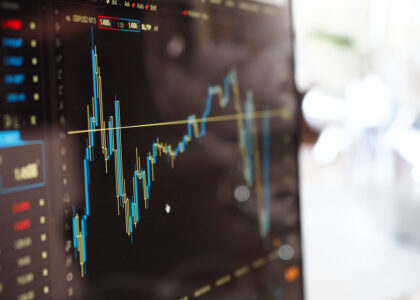Global events often play a pivotal role in shaping stock market trends. From geopolitical conflicts to pandemics, such occurrences can create opportunities and risks for investors. This guide explores how these events influence markets, with actionable strategies to protect your portfolio during turbulent times.
1. How Geopolitical Events Influence Stock Prices
Types of Geopolitical Events:
-
Wars and Conflicts:
- Wars often trigger uncertainty, causing investors to sell riskier assets and seek safe havens like gold or government bonds.
- For example, the Russia-Ukraine conflict led to spikes in energy prices and impacted global equity markets.
-
Elections:
- Elections can bring policy uncertainty, influencing sectors based on expected regulatory changes.
- In the U.S., for instance, markets often react to presidential elections, with defense and healthcare sectors particularly sensitive.
-
Trade Deals and Sanctions:
- Positive trade agreements can boost market confidence, while tariffs or sanctions can harm sectors reliant on international trade.
- Example: The U.S.-China trade war created volatility in tech and agriculture stocks globally.
2. The Correlation Between Natural Disasters and Market Reactions
Immediate Impact:
- Natural disasters like hurricanes, earthquakes, and tsunamis often lead to short-term market sell-offs due to infrastructure damage and economic disruption.
- Sectors such as insurance, construction, and energy experience direct impacts.
Long-Term Effects:
- Rebuilding efforts may boost certain industries like construction and raw materials.
- Example: After Hurricane Katrina in 2005, energy stocks surged due to disruptions in oil production.
3. Understanding How Pandemics Create Market Upheaval
Pandemics can have profound and lasting impacts on stock markets, as seen with COVID-19.
Initial Market Reactions:
- Panic selling and extreme volatility.
- Declines in travel, hospitality, and retail stocks.
Long-Term Shifts:
- Growth in sectors like technology, e-commerce, and healthcare.
- Supply chain disruptions reshaped manufacturing and logistics industries.
Example:
During the COVID-19 pandemic, the S&P 500 initially plunged over 30% but rebounded strongly as central banks intervened and digital-focused businesses thrived.
4. Strategies for Protecting Your Portfolio During Global Crises
1. Diversification:
- Spread investments across asset classes (stocks, bonds, commodities) and geographies to mitigate region-specific risks.
2. Safe-Haven Investments:
- Allocate a portion of your portfolio to assets like gold, Treasury bonds, or defensive stocks (e.g., utilities, healthcare).
3. Stay Informed but Rational:
- Follow reliable news sources to understand developments but avoid making panic-driven decisions.
4. Maintain Liquidity:
- Keep an emergency fund or cash reserves to capitalize on buying opportunities during market dips.
5. Hedging Strategies:
- Use options or inverse ETFs to protect against potential losses in volatile markets.
6. Long-Term Focus:
- Avoid reacting to short-term noise. Historical data shows markets eventually recover from global crises.
5. Case Studies of Major Global Events and Their Effects on Stock Markets
Case Study 1: 9/11 Terrorist Attacks (2001)
- Impact:
- U.S. stock markets were closed for several days, and the Dow Jones Industrial Average dropped over 14% upon reopening.
- Sectors like aviation and tourism suffered, while defense stocks gained.
- Recovery:
- Markets stabilized as the government implemented economic stimulus measures.
Case Study 2: Global Financial Crisis (2008)
- Impact:
- The collapse of Lehman Brothers triggered a global sell-off, with major indices losing over 50% of their value.
- Financial stocks bore the brunt of the crisis.
- Recovery:
- Central banks’ interventions and stimulus packages eventually led to a prolonged bull market.
Case Study 3: COVID-19 Pandemic (2020)
- Impact:
- Travel, leisure, and oil sectors experienced significant losses.
- Tech and e-commerce stocks soared due to shifts in consumer behavior.
- Recovery:
- Aggressive monetary policies and vaccine rollouts fueled a rapid market rebound.



